Cardio-Vascular
Share this page
&w=710&h=710)
Goals of the Cardiovascular theme
The central goal of the Cardiovascular theme is to strengthen the research programs directed at the various aspects of Cardiovascular Diseases (CVD) within the LUMC by creating a coherent and inspiring research community of clinical, translational and fundamental research within the various participating groups, that work closely together in a multidisciplinary way. CVD comprise a broad range of morbidities, ranging from occlusive arterial disease and myocardial infarction, thrombosis, hypertension, heart failure, valve disease, arrhythmias, stroke, microvascular disorders, vascular remodeling and complications thereof, as well as congenital cardiovascular malformations and cardiovascular problems related to metabolic disorders. CVD covers basically all aspects of the blood circulation: the heart, the vessels and the blood with the coagulation system.
Research within the Cardiovascular theme in the Leiden University Medical Center (LUMC) is directed at improving the understanding of the complex pathophysiology of the various aspects of CVD as mentioned above, involving interplay with many organs including the heart, blood vessels, lungs, liver, intestines, adipose tissue, autonomic nerves and brain, but also developing, testing and validating new therapeutic and diagnostic approaches using state of the art techniques.
The central goal of the LUMC Cardiovascular theme will be achieved by:
- creating dedicated research communities working on relevant subthemes in the field of CVD, (each with an ambassador at the young faculty level)
- defining additional committed talent management with a buddy system across all research groups in the theme
- improving connectivity between researchers by organizing social events that will aid in optimal use of available expertise, methodological, technical resources and synergy between the theme members as well as (joint) grant application opportunities
The theme is coordinated by:
Paul Quax - Professor in Experimental Vascular Medicine
Prof. Dr. P.H.A. Quax is a vascular biologist by training, head of Experimental Vascular Surgery and chair of Cardiovascular Research Theme at the LUMC and chairman of Leiden Vascular Medicine.
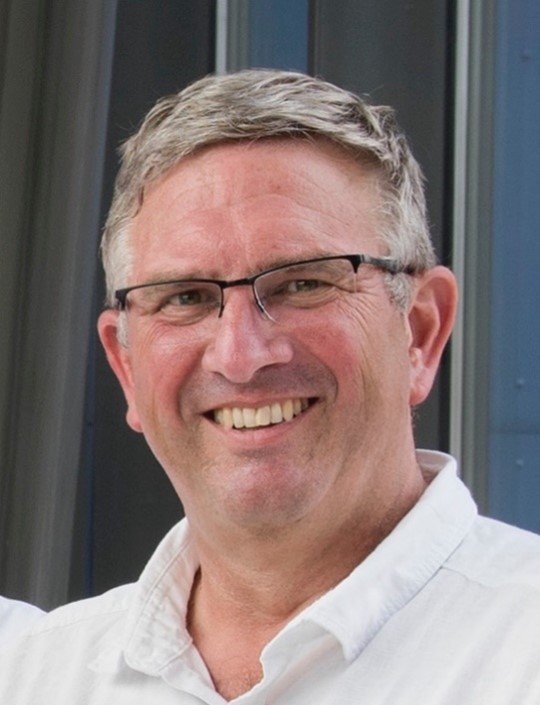
His research interests are the pathophysiological aspects of vascular remodeling in general, ranging from atherosclerosis to angiogenesis, from post-interventional vascular remodeling to basic aspects of vascular and endothelial cell biology. Current research focusses on inflammatory and immune modulation in vascular remodeling, the role of non-coding RNAs in vascular remodeling and most recently the role of the microvascular bed in the regulation of pathological and regenerative processes of cardiovascular remodeling. He has published more than 260 peer reviewed papers, is member of several grant reviewing boards and editorial boards of cardiovascular journals.
Wouter Jukema - Professor in Cardiology, in particular regenerative cardiovascular medicine – Head of department of Cardiology
Prof. dr. J.W. Jukema received his training as Cardiologist in Amsterdam (Vrije Universiteit) and Leiden (Leids Universitaty Medical Center (LUMC).
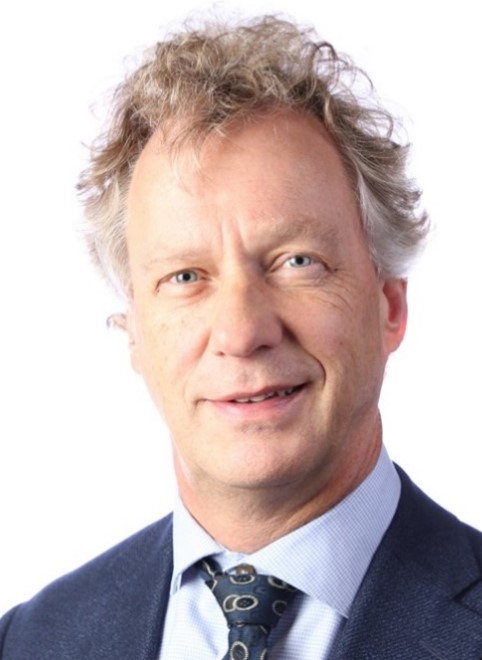
Since January 1st, 2021 his head of the department of Cardiology at the the LUMC. Furthermore, is Jukema "Past Established Clinical Investigator" of the Netherlands Heart Foundation” and "founding director" of the in 2007 established "Durrer Institute for Cardiogenetic Research" in Amsterdam. In addition, he is Co-Chair of the Netherlands Heart Insitute in Utrecht. His research and clinical practice is focused on athero-thrombisis, both in respect to (interventional) cardiology and to coronary atherosclerosis. This athero-thrombosis research is directed at vascular biology, lipoprotein metabolism and the genetic backgrounds of athero-thrombosis and restenosis/thrombosis after PTCA, both in patients and transgenic animals. Most of his publications are directed at these topics. He is principcal investigator for multiple international athero-thrombosis studies and member of several (inter)national atherosclerosis , thrombosis and lipoprotein societies and consortia.
Erik Klok, professor of Medicine, in particular vascular medicine
Prof. Dr. F.A. Klok is a board-certified specialist in Internal Medicine, with a specialty in vascular medicine in the Leiden University Medical Center (Leiden, the Netherlands) and holds a position as visiting scientist at the Center for Thrombosis and Hemostasis in Mainz (Germany). This allows him to combine clinical work with international scientific activities. His research domain involves pre-clinical and clinical studies focused on diagnosis, treatment and prognosis of venous thromboembolism, with a particular interest in long-term outcomes of acute pulmonary embolism.
This allows him to combine clinical work with international scientific activities. His research domain involves pre-clinical and clinical studies focused on diagnosis, treatment and prognosis of venous thromboembolism, with a particular interest in long-term outcomes of acute pulmonary embolism.
Monique Jongbloed - cardiologist
Dr. Monique R.M. Jongbloed is a cardiologist specialized in adult congenital heart disease (ACHD) and clinical morphology and development.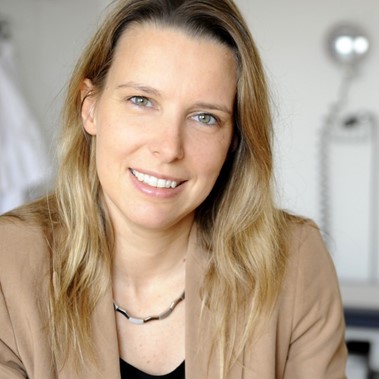
She works as a Cardiologist in the ACHD team of the “Centrum Aangeboren Hartafwijkingen Amsterdam-Leiden” (CAHAL), location Leiden University Medical Center (LUMC). In addition she works as principle investigator and clinical anatomist at the dept. of Anatomy & Embryology of CAHAL location LUMC. She has a strong interest in translational research, with emphasis on late sequelae of structural and congenital heart disease, especially arrhythmias and the role of cardiac autonomic innervation therein. She is involved in several collaborative research projects on structural and congenital heart disease, nucleus member of the working group Cardiovascular Morphology of the Association for European Paediatric and Congenital Cardiology (AEPC) and ambassador of the patient-initiated foundation Hart4Onderzoek (Heart4Research). She takes part in academic teaching programs, as well as in national and international teaching in the area of cardiac morphology, embryology and congenital heart disease.
Anastasia Egorova
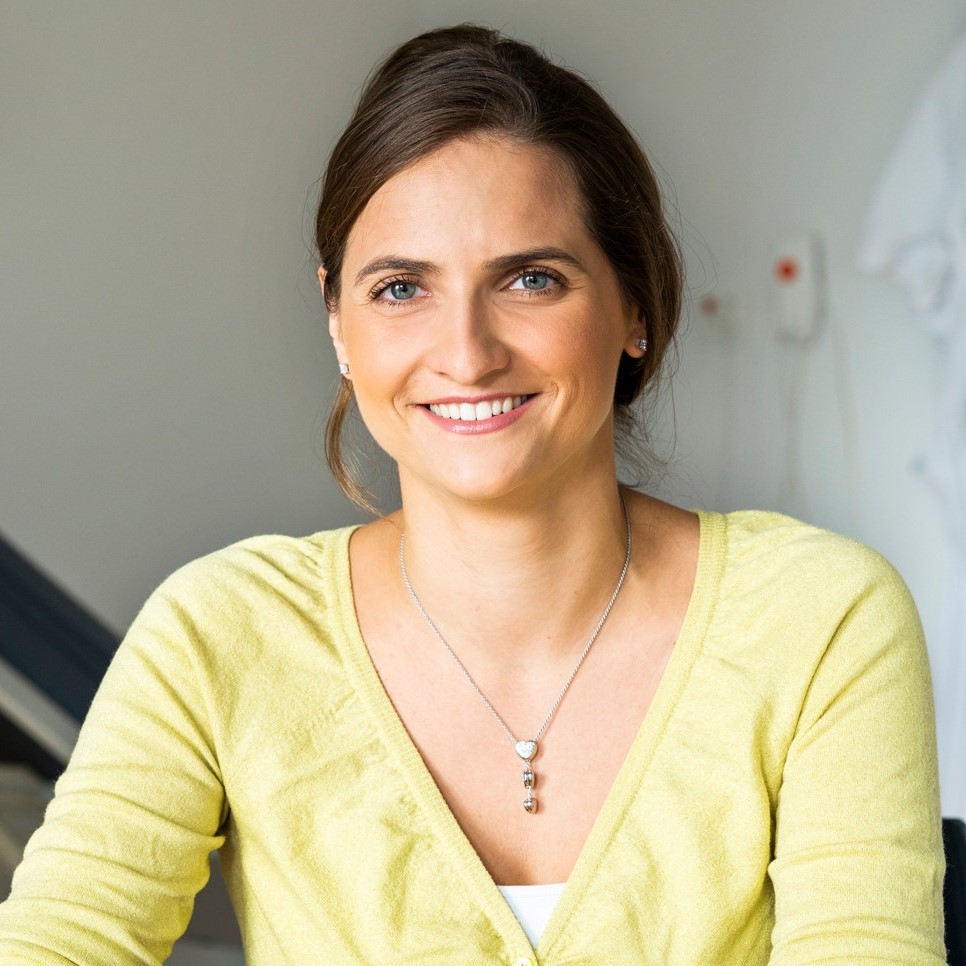 Dr. Anastasia Egorova (MD, PhD) is an adult congenital heart disease cardiologist and a cardiac implantable electronic device specialist practicing at the Leiden University Medical Center in the Netherlands and working as part of Centrum Aangeboren Hartafwijkingen Amsterdam-Leiden (CAHAL) and the Willem Einthoven Center for cardiac arrhythmia research and management. Her ambition is to contribute to the advances and knowledge utilization in the field of adult congenital heart disease (ACHD) related heart failure.
Dr. Anastasia Egorova (MD, PhD) is an adult congenital heart disease cardiologist and a cardiac implantable electronic device specialist practicing at the Leiden University Medical Center in the Netherlands and working as part of Centrum Aangeboren Hartafwijkingen Amsterdam-Leiden (CAHAL) and the Willem Einthoven Center for cardiac arrhythmia research and management. Her ambition is to contribute to the advances and knowledge utilization in the field of adult congenital heart disease (ACHD) related heart failure.
Her academic interests focus on (1) optimizing the treatment and pacing strategies for congenital heart disease patients with heart failure and (2) the role of eHealth, sensor based technologies and remote monitoring in the care for patients with heart failure. She has recently completed the Harvard Medical School post graduate “Global Clinical Scholars Research Training” program. Anastasia is supervising several PhD students and has been awarded a number of research grants and awards, including support from the Leiden University Johanna Zaaier Fund, the LUMC cardiovascular research team grant, Dr. Catharine van Tussenbroek Fonds, and the Van Walree Fonds of the Royal Netherlands Academy of Arts and Science. She is an active and dedicated member of numerous national and international professional societies and is a fellow of the ESC of scientific excellency, fellow of the European Heart Failure Association, member of the ESC heart failure scientific committee on cardiac devices, member of the EHRA exam committee for cardiac rhythm device therapy, and a nucleus member of the NHI working group of remote monitoring in heart failure. Anastasia is an advocate for education and patient empowerment and supports several patient organizations by means of expert webinar participation and patient education sessions.
As an ambassador of the cardiovascular research theme she will encourage and support multidisciplinary research striving for the optimal utilization of the talent, skills and resources within the LUMC. She hopes to facilitate a strategic expansion of the multidisciplinary network of the cardiovascular research theme. As an active member of the newsletter editorial board, she would like to enhance the visibility of the research theme within the institution and beyond.
Anke Smits
Dr. A.M. Smits is a cardiovascular cell biologist, who is interested in cells that can contribute to repair of the injured heart. She focusses on cell-based therapies, and on stimulation of endogenous cells with reparative capacity, with a specific interest in the epicardium.
Cell-based therapy includes the delivery of cells or cell-derived products that can contribute to repair of the injured myocardium via e.g. direct differentiation, paracrine mechanisms, or matrix remodelling. She focusses on the identification of an optimal cell (product) to stimulate reparative capacity of the heart. To this end, she combines cell and tissue culture methods with pre-clinical models for e.g. myocardial infarction, and state-of-the-art small animal imaging modules.
Hildo Lamb
Prof. dr. H.J. Lamb, MD, is professor of radiology and director of Cardiovascular Imaging at the Leiden University Medical Center, The Netherlands.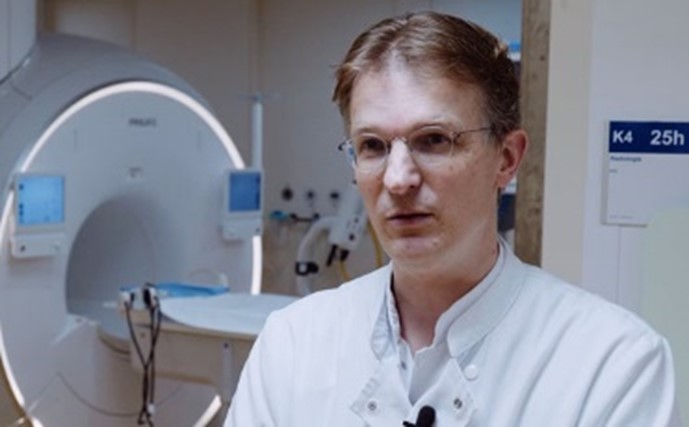 Clinical focus is on cardiovascular radiology, thoracic radiology, mammography, and pediatric radiology. Main focus is on the development of MR imaging techniques with rapid conversion to clinical application, including 4D-Flow, molecular and metabolic imaging, 3D imaging, rapid acquisition techniques and MR spectroscopy.
Clinical focus is on cardiovascular radiology, thoracic radiology, mammography, and pediatric radiology. Main focus is on the development of MR imaging techniques with rapid conversion to clinical application, including 4D-Flow, molecular and metabolic imaging, 3D imaging, rapid acquisition techniques and MR spectroscopy.
He is chairman of the Management Team Research, including the scientific committee of the Department of Radiology LUMC, Leiden, The Netherlands. He is involved in the medical training program of medical students at Leiden University as teacher, coordinator and task force member of a committee restructuring internships.
Jesper Hjortnaes
Dr. Jesper Hjortnaes (MD, PhD) is cardiothoracic surgeon, with special interest and experience in aortic root, aortic surgery, dissections, endocarditis and mechanical circulatory support (MCS) for heart failure.

He is working as a staff surgeon/consultant at the department of cardiothoracic surgery in Leiden University Medical Center (LUMC) and in Amsterdam University Medical Center (AUMC) in the Netherlands.
Furthermore, he has won numerous grants (Dekker, Dutch Heart Foundation, NWO) and at Leiden University Medical Center he is principal investigator on translational cardiovascular projects, focusing on engineering myocardial tissue akin to the human heart. In addition, he is a works on clinical research regarding aortic root surgery, aortic surgery, dissections.
He is a founder of the International Conference for Heart Valve Tissue Engineering, and active organizing member of the Heart Valve Society and the European Association of Cardiothoracic Surgery (EACTS) . Furthermore he is part of the Dutch Cardiovascular Alliance (DCVA) leadership program.
As ambassador of the Cardiovascular Theme, trained in both basic science, biomedical engineering, translational science and cardiac surgery, his primary task is to connect these worlds and build a robust network of science which will translate discovery and technology to our patients. By building on an extensive disease modelling toolbox, ranging from the lab, to animals to tissue models, he will contribute to collective goal of improving health for all patients with cardiovascular disease.
Joost van der Vorst
Dr. Joost van der Vorst is a distinguished vascular surgeon, whose expertise and dedication have made a significant impact in the medical field. Trained at the Leiden University Medical Center (LUMC) and regional hospitals, he has earned a reputation for his outstanding contributions and achievements. 
As a Fellow of the European Board of Vascular and Endovascular Surgery (with honours), his clinical expertise spans a wide range of specializations, with a particular focus on aortic surgery, excelling in both open and endovascular techniques. Additionally, he has garnered expertise in the treatment of the rare nutcracker syndrome.
Apart from his clinical practice, Dr. van der Vorst is actively involved in the field of medical education He plays a pivotal role in teaching clinical rotations and has assumed the position of head of clinical training for the vascular surgery residency program at LUMC since 2020. His dedication to nurturing the next generation of vascular surgeons reflects his commitment to advancing medical education.
Furthermore, Dr. van der Vorst has embarked on a research journey. He has been a research fellow at the prestigious Harvard Medical School and his successful research lines have been supported by both national grants, such as NWO and Health Holland PPP grants, and international grants, including Horizon 2020 and Horizon Europe grants. His research endeavors encompass various aspects, notably the development of novel imaging techniques to visualize and quantify tissue perfusion. As the Principal Investigator of several multicenter randomized controlled trials, he is at the forefront of cutting-edge medical advancements.
Within the cardiovascular research theme in the LUMC, dr. van der Vorst has put effort in the start of the Aortic Center Leiden. This center serves as the nexus for channeling both clinical and research efforts, promoting collaboration among clinical specialists, fundamental researchers, translational scientists, and experts in experimental biomedical imaging. Furthermore, it facilitates international partnerships, exemplified by his ongoing collaboration with the Rigshospitalet in Kopenhagen.
Margreet de Vries
Dr. M.R. de Vries is assistant professor at the department of Vascular Surgery. In 2014 she got her PhD at Leiden University on te topic: “Mechanistic factors and innate immunity components in vein graft disease”.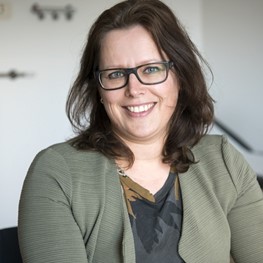
She has a long-standing interest in vascular remodeling; from angiogenesis and atherosclerosis to post-interventional remodeling in vein grafts and arteriovenous fistula using complex in vivo and in vitro models, and is specialized in preclinical vascular microsurgery and non-invasive imaging strategies including ultrasound and photoacoustics. She supervises multiple PhD students, is involved in teaching Bachelor and Master Student and gives (inter)national trainings on preclinical vascular microsurgery. She is visiting associate professor at the Vascular and Endovascular Surgery department at Brigham’s and Women hospital/Havard Medical School.
Meindert Palmen
Dr Meindert Palmen (MD, PhD) is a senior cardiothoracic surgeon, with special interest and experience in (robotic and conventional) mitral and tricuspid valve surgery and both short and long-term mechanical circulatory support (MCS) for end-stage heart failure.
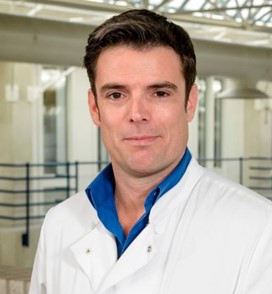
Furthermore, he is an academic researcher involved in basic and translational cardiovascular research, mainly concentrating on heart failure and heart failure surgery (awarded with several Bontius Stichting grants) and is involved in clinical research on valvular heart disease and cardiac arrhythmias. He is working at the department of cardiothoracic surgery in Leiden University Medical Centre (LUMC) in Leiden and in Amsterdam University Medical Centre (AUMC) in Amsterdam (the Netherlands) and is leading the conventional and robotic mitral (and tricuspid) valve surgery program on both locations. Furthermore, he is director of long-term MCS program in LUMC. He is vice-director of the cardiothoracic surgical residency training program. He is an active member of the European Association of Cardiothoracic Surgery (EACTS) Task Force of Mitral and Tricuspid Valve disease and is lecturer for the EACTS Cardiac Surgery Courses and Examiner for the European Board Exam of EACTS.
Being both researcher and clinician, as ambassador of the Cardiovascular Theme, his primary focus will be on building bridges between basic scientist and clinicians, focussing on bench to bedside projects on valvular heart disease, cardiac arrhythmias and (micro)vascular medicine. In order to further improve the output and visibility, close cooperation and dedication of all researchers involved and a clear focus of cardiovascular research team is mandatory. As an ambassador for the Cardiovascular Theme he will try to embody be the link between basic science and clinic and improve collaboration between both groups of researchers.
Monique Haak
Dr. Monique Haak, MD, is a gynecologist-perinatologist and fetal surgeon. Her area of expertise is fetal medicine, with a particular focus on congenital heart defects.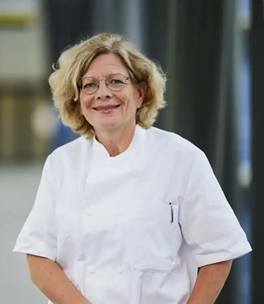
She earned her PhD in 2003 with her thesis entitled "Nuchal Translucency and cardiac failure: association of speculation?" and completed her gynecology residency at VU Medical Center in 2007. She served as a staff member at VUmc until 2011, after which she worked as a fetal surgeon at LUMC. She is skilled in the echoscopic diagnosis of congenital abnormalities and is the coordinator of the fetal heart clinic, where parents expecting a child with a congenital heart defect can receive care.
This clinic places a strong emphasis on the physiology of pregnancy and childbirth, as well as the emotional preparation for the journey ahead. Additionally, she is one of two fetal surgeons in the Netherlands who perform fetal valve dilation.
Her research focuses on improving the prenatal diagnosis of fetal heart defects, the fetal growth and neurological development of fetuses with congenital heart defects, and fetal heart function
As per July 2022 she was appointed as Professor in Gynaecology, with the specialization in fetal cardiology at the LUMC.
Nina Ajmone Marsan
Dr. Nina Ajmone Marsan is a senior cardiologist, specialized in non-invasive cardiovascular imaging, PhD and Fellow of the Europeans Society of Cardiology (FESC) for scientific excellence. At the Leiden University Medical Center she is also the initiator and coordinator of the Heart Valve Center, and she supervises several PhD students (12 completed and 11 ongoing).
Her main research topic is the clinical applications of imaging in cardiovascular disease, with special focus on valvular heart disease (particularly for patients referred for surgical and trans-catheter interventions), cardiomyopathies and systemic disease. She is also the principal investigator of translational research projects in mitral and aortic valve disease supported by the Dekker Clinical Established Investigator grant 2021 (Nederlandse Hartstichting).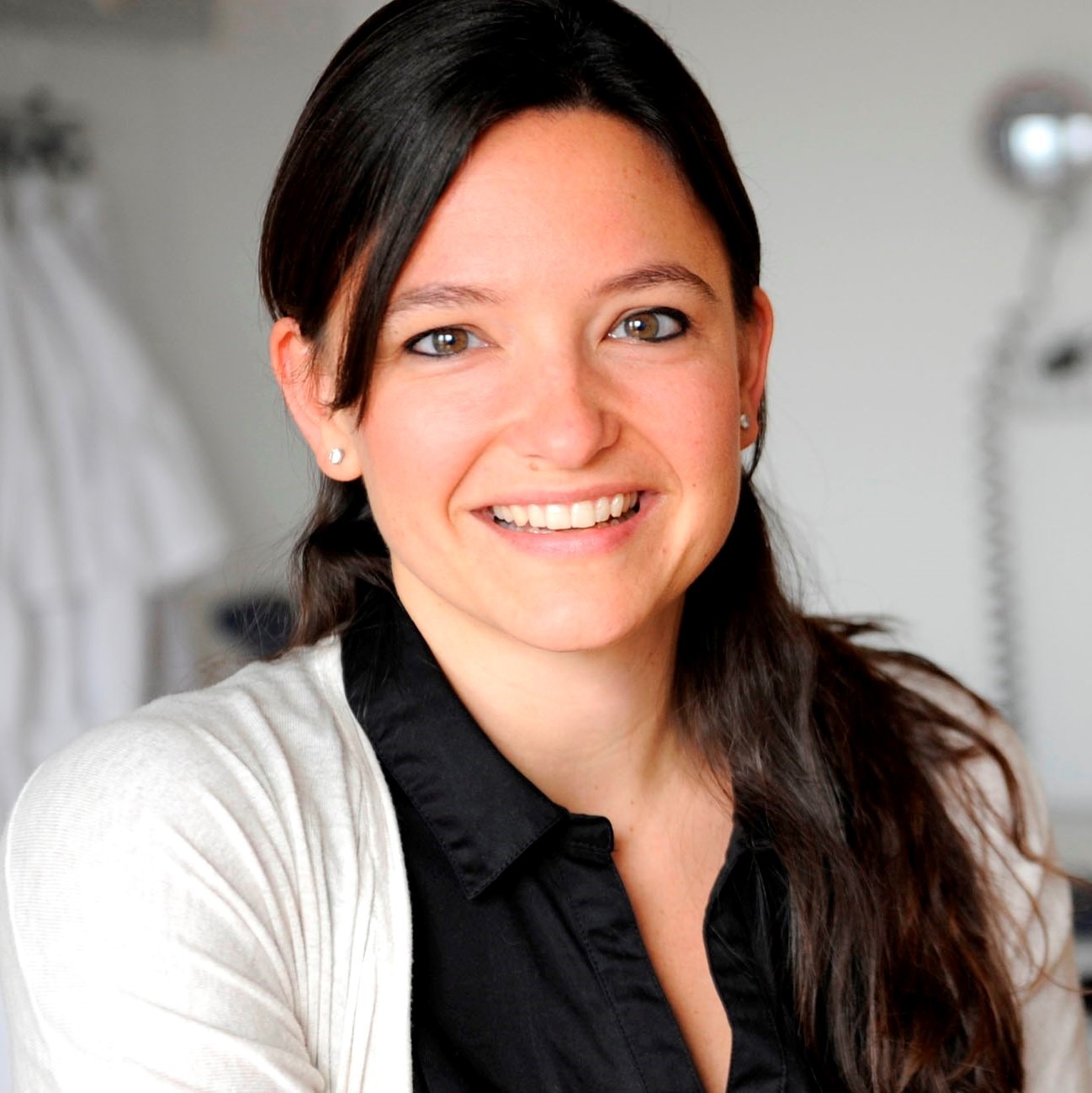
She is vice-president elect of the European Association of Cardiovascular Imaging and Chair of the Task Forces committee. She is Associate Editor of the European Heart Journal since 2020, and of the Journal of the American Society of Echocardiography since 2023.
As ambassador of the Cardiovascular Team, she focusses in creating a dedicated research group on valvular heart disease, working from fundamental science to the application of the most advanced imaging techniques, and to the study of novel therapeutic options. With this objective, a multidisciplinary approach is warranted, with improved synergy and connectivity between different researchers (including molecular biologists, cardiologists, thoracic surgeons, radiologists etc..), and the opportunity for an optimal use of the available expertise of the Cardiovascular Theme members.
She will also provide her expertise as cardiovascular imager and her involvement in research and educational activities at international level to boost a broader application of advanced imaging in each field of research of the Cardiovascular Theme.
Nyika Kruijt
Dr. N.D. Kruyt is a clinical neurologist since 2010. In 2014 he acquired a position as a vascular neurologist and educator at the LUMC. He was actively involved in the recent formation of the University Neurovascular Center Leiden-the Hague (UNVC), now one of the largest Dutch centers of excellence for acute stroke care.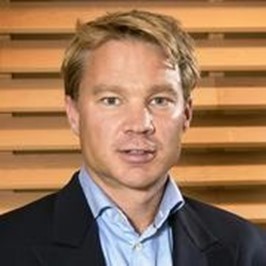
In the LUMC he has set up a research line that focusses on the entire chain of acute stroke care which starts outside the hospital and ends when reperfusion treatment is started. Currently he supervises 6 PhD students related to this line of work. He acquired several grants (Dutch Brain Foundation, Heart Foundation, Innovation funds of health Care Insurers and Health Holland) to set up various (multiregional) studies bringing together ambulance services, primary stroke centers and comprehensive stroke centers. The recently published Leiden Pre-hospital Stroke scale study (including two ambulance regions and 7 hospitals) is a notable example, leading to the identification of a clinical scale to improves ambulance-based triage of patients suspected to have acute stroke due to large vessel occlusion, enabling direct allocation to a comprehensive stroke center. The results of this study were immediately implemented to standard clinical practice. More to the point for the current application is the MIRAS study that investigates small RNAs in patients suspected to have acute stroke.
Patrick Rensen
Patrick C.N. Rensen is professor Metabolic Aspects of Vascular Disease within the division of Endocrinology at Leiden University Medical Center, Leiden, The Netherlands, and guest professor at Xi’an Jiaotong University, Xi’an, China. He is Established Investigator of the Dutch Heart Foundation, past chairman of the European Lipoprotein Club (ELC), and current board member of Leiden Vascular Medicine (LVM), the Dutch Atherosclerosis Society (DAS) and Scandinavian Society for Atherosclerosis Research (SSAR). He is local quarter maker for the national consortium ‘Athero-NL’, focusing on risk stratification in atherosclerotic cardiovascular disease (asCVD). 
Within the LUMC research theme ‘CardioVascular’, his research focuses on modulation of energy metabolism as a strategy to prevent and treat cardiometabolic diseases such as obesity and associated diseases including type 2 diabetes, metabolic dysfunction-associated steatotic liver disease (MASLD) and asCVD, by combining mechanistic experiments in a humanized mouse model for cardiometabolic diseases (i.e., APOE*3-Leiden.CETP mice) with human intervention studies in metabolically compromised individuals.
Within the theme ‘CardioVascular’, he collaborates with e.g. Martin Giera (Center for Proteomics and Metabolomics; lipidomic biomarkers and a novel DHCR24-inhibiting strategy to prevent and treat NASH and asCVD; patent pending), Maarten Tushuizen (Gastroenterology; effect of timed exercise on human MASLD), Hildo Lamb (Radiology; effect of pharmacological and lifestyle interventions on hepatosteatosis), Lioe-Fee de Geus-Oei (Radiology; a new radiolabel to trace human triglyceride catabolism; patent pending), Raymond Noordam (Gerontology and Geriatrics; epidemiology and genetics of human cardiometabolic disease), Roel Bijkerk (Nephrology; role of microRNAs in cardiometabolic disease), and Margreet de Vries (Vascular Surgery; role of gut microbiome in graft survival).
His research connects the research theme ‘Cardiovascular’ with other LUMC research themes, including ‘Prevention and Lifestyle’ (e.g. role of specific gut bacteria in cardiometabolic health, patent pending; effect of timed lifestyle interventions including cold exposure an exercise in cardiometabolic disease; theme grant awarded) and ‘Academic Pharma’ (pharmacological interventions in cardiometabolic disease; theme grant awarded; patent pending).
Within educational activities organized by the LUMC research theme ‘CardioVascular’ for students Medicine and Biomedical Sciences, he actively contributes by coordinating the Frontiers of Science (FOS) course ‘Cardiometabolic Diseases’ (nominated for best course Biomedical Sciences; 2023) and the topic ‘Macrovascular disease’ within the Half Minor ‘Heart and Blood Vessels’, and by teaching on lipid metabolism and atherosclerosis in the courses ‘Metabolism’ and ‘Control and Metabolism’. In addition, >20 BSc and MSc students perform their traineeships in his group each year.
Current grant support includes the Dutch Research Council (NWO), Dutch Heart Foundation (DHF), Dutch Diabetes Research Foundation (DFN), European Federation for the Study of Diabetes (EFSD), Maag-Lever-Darm Stichting (MLDS), Leiden University Fund (LUF) and the Chinese Scholarship Council (CSC), and pharmaceutical companies (e.g., AstraZeneca, Eli Lilly and Lipigon). He currently co-authors >380 publications in peer-reviewed scientific journals including Cell, Cell Metab, Cell Rep Med, Nat Med, Nat Commun, Sci Transl Med, Circulation and Diabetes (Web of Science: >12,800 citations; H-index 61).
Roel Bijkerk
Chronic kidney disease (CKD), with diabetes as its leading cause, affects one in every ten adults and is associated with a high risk of developing cardiovascular disease. Dr. Bijkerk aims to elucidate the (post-transcriptional) signaling networks that drive kidney injury and repair to identify modifiable therapeutic targets to counteract the development of CKD.
To that end, the vascular nephrology research team of Dr. Bijkerk connects fundamental and translational research and focuses on 1) the intrinsic regenerative capacity of the kidney by the cells of the renin-lineage that in addition to their role in regulating blood pressure and fluid and electrolyte homeostasis, also provide a niche of pluripotent progenitor cells that can replace injured kidney tissue; 2) post-transcriptional regulation of kidney fibrosis and vascular injury by (circulating) non-coding RNAs such as microRNAs, long non-coding RNAs and yRNAs, that may be targeted using ‘RNA-therapeutics’.
His aim as ambassador is to connect fundamental and translational research, extent his work to the other research fields within the theme, and make the first step towards potential therapeutic application of research findings with a focus on RNA-therapeutics.
Sander Kooijman
A distressing 15% of the Dutch work force is engaged in shift work and nearly everyone who works at night experiences symptoms related to sleep deficits.  In addition, long-term repeated exposure to night work has been associated with increased risk of developing metabolic and cardiovascular diseases, including obesity (relative risk: 1.23), diabetes (relative risk: 1.40), stroke (relative risk: 1.05), and heart failure (relative risk: 1.23). In recent years, the research team of Dr. S. Kooijman confirmed that modelled shift work and other forms of circadian disturbance can be causally linked to these cardiometabolic diseases, and unraveled underlying mechanisms to come up with novel therapeutic strategies (e.g. PNAS USA 2015, Cell Rep 2018, J Pineal Res 2020, Mol Metab 2021).
In addition, long-term repeated exposure to night work has been associated with increased risk of developing metabolic and cardiovascular diseases, including obesity (relative risk: 1.23), diabetes (relative risk: 1.40), stroke (relative risk: 1.05), and heart failure (relative risk: 1.23). In recent years, the research team of Dr. S. Kooijman confirmed that modelled shift work and other forms of circadian disturbance can be causally linked to these cardiometabolic diseases, and unraveled underlying mechanisms to come up with novel therapeutic strategies (e.g. PNAS USA 2015, Cell Rep 2018, J Pineal Res 2020, Mol Metab 2021).
In addition to the circadian regulation, he is broadly interested in the regulation of lipid metabolism; for example, he has contributed to the discovery of many pharmaceutical targets that promote thermogenesis in brown adipose tissue, and prevent metabolic and cardiovascular diseases (e.g. Nat Commun 2015, Sci Transl Med 2016, Gut 2017, Diabetes 2019, JCI Insight 2019, Cell Rep 2019, Cell Metab 2020, Cell 2021).
Research collaborations and alliances
Societal impact
The Cardiovascular Center Leiden is anchored within the society and feels a strong obligation to play an important role to improve health and improve prognosis of patients with CVD. Examples are the Women and Heart disease campaign to increase awareness that women can get a myocardial infarction, the Heart-Vascular Disease Café’s (together with the patient group), world thrombosis day, close interaction of the various clinical and research groups with patient organizations and the Taskforce QRS initiative to stimulate resuscitation training sessions in schools and, for example, in sports clubs. The ambition for the coming years is to extend these activities to the full broadness of all groups involved in the Cardiovascular theme. In addition, we would like to increase the societal outreach to a level where crowd funding and public interaction may occur.
And in light of the activities related to Leiden European City of Science the researchers of the Cardiovascular Theme are involved in the organization of several general public oriented activities.
Relation with Referral Care
The CVD theme relates to a broad range of Referral care programs (‘top referente zorg’, TRF), only several examples are discussed here below.
The coagulation disorder program is linked to referral care for thrombotic and bleeding disorders. The latter is further supported by the leading role of the section in the Thrombosis Expertise Center Leiden and in the Leiden Expert Center for Hemophilia and Allied Disorders and by participating in the European Reference Network on hematological diseases (EuroBloodNet). The Vascular Surgery program is linked to referral care for complex aneurysm repair and peripheral arterial disease treatment. The referral care topic for the cardiology program relate to a broad scala of top cardiac clinical care programs. The referral care topic for cardiac surgery is congenital heart disease, complex valve disease and heart failure. The LUMC as part of the Center for Congenital Heart Disease Amsterdam-Leiden (CAHAL), is an expertise center for congenital heart disease and part of the European Reference Network for rare cardiac diseases GuardHeart. Since three years the department of cardiothoracic surgery forms an interacademic institution with the department of cardiothoracic surgery of the Amsterdam UMC. In the near future research activities and referral topic will be joint.
The referral care topic for stroke relate to acute ischemic stroke (Endovascular treatment) and cerebral amyloid angiopathy (the LUMC is the Dutch referral center for hereditary and sporadic CAA).
Opportunities
For PhDs and Postdocs
Information on mandatory, highly recommended and other relevant but not mandatory courses are presented here. You can browse through all the known courses. You can filter for courses relevant for the 10 LUMC Research Themes, and you can also search using keywords. Information such as the number of study credits (EC), the course duration, study year, website and background information are provided when known. Feedback on missing courses, incorrect or outdated information is welcome.
A selection of courses specifically tailored for Cardio-Vascular can be found here.